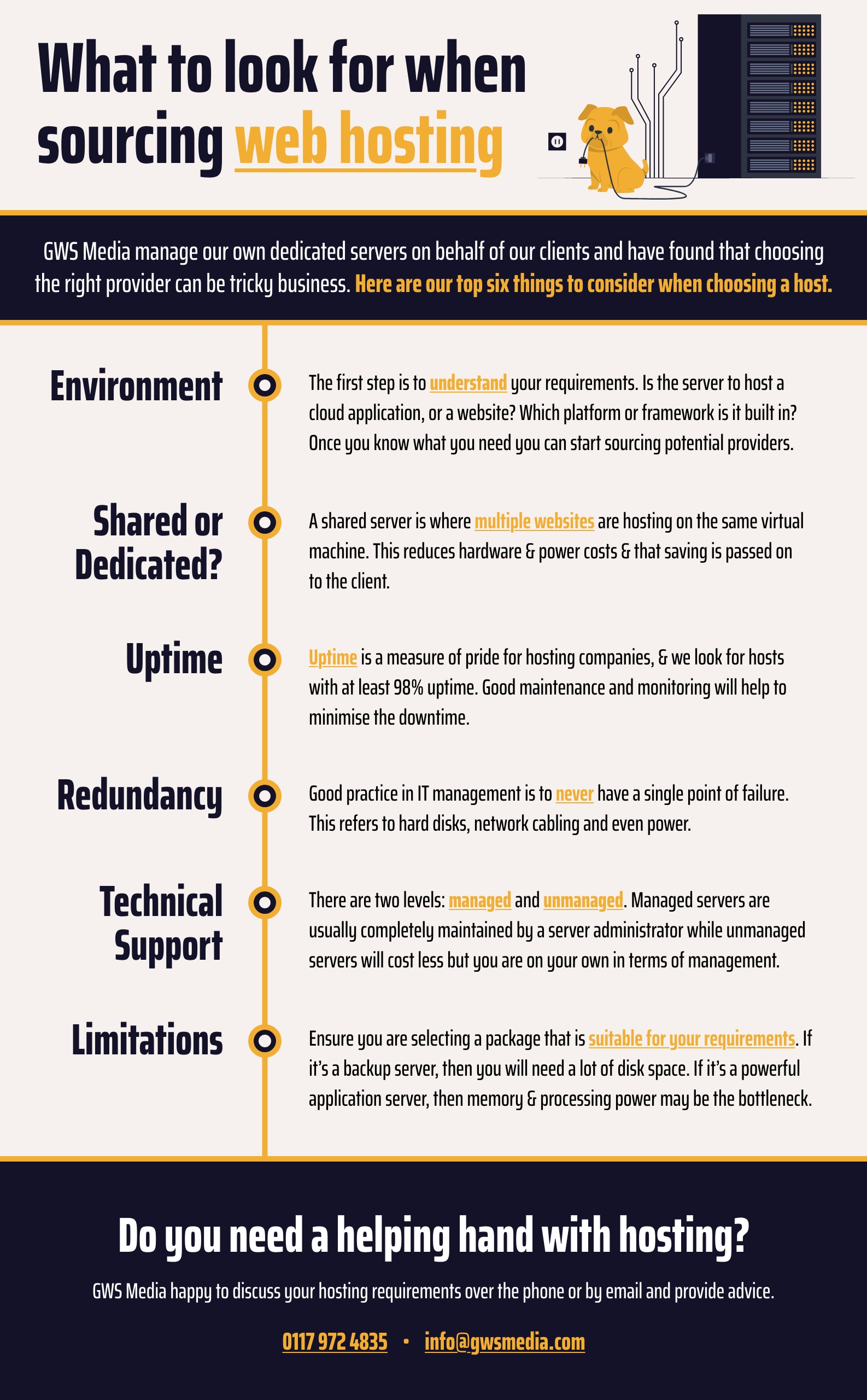Here at GWS Media, we deal with web hosting on a daily basis.
We manage our own dedicated servers on behalf of our clients and have found that choosing the right provider can be tricky business.
If you rely on your website for enquiries or sales then it would be wise to treat your web hosting choices with due diligence.
Here are our top six things to consider when choosing a host.
Environment
The first step is to understand your requirements.
Is the server to host a cloud application, or a website?
Which platform or framework is it built in?
If it’s a bespoke application, then your developer should be able to give guidance on the ideal hosting environment.
If it’s an Open Source content management system then the server requirements are usually publicly available:
Once you know what you need you can start sourcing potential providers.
There are many hosting review websites that you can use for comparisons.

Shared or Dedicated?
A shared server is where multiple websites are hosting on the same virtual machine.
This reduces hardware and power costs and that saving is passed on to the client.
However, there are downsides.
Shared hosting can result in websites fighting for resources which can hinder the performance and stability of your own website.
There is also shared risk from hacking attempts.
If one site is hacked, there is potential for other sites to also be compromised.
There is speculation that Google can treat a 'bad neighbourhood' of sites with caution, which can hinder your SEO efforts.
Uptime
No server is perfect – we have yet to see a host that guarantees a server is online 100% of the time.
Uptime is a measure of pride for hosting companies, and we look for hosts with at least 98%.
There are many reasons why a server can go offline, but it’s mostly software errors, connectivity issues or depleted resources.
Good maintenance and monitoring will help to minimise the downtime.

Redundancy
Good practice in IT management is to never have a single point of failure.
This refers to hard disks, network cabling and even power.
Hosting companies often include a page on their website detailing how redundant their data centre is.
Technical Support
Does the hosting company provide dedicated technical support?
There are often two levels: managed and unmanaged.
Managed servers are usually completely maintained by a server administrator who takes care of security patches, updates and upgrades. They are on-hand to answer any requests and issues that you may be having with the service.
Unmanaged servers will be cost less but you are on your own. We only recommend going down this route if you are competent and have the time to manage your own technical support. The hosting provider will only provide support on the infrastructure and data centre.
Limitations
Ensure you are selecting a package that is suitable for your application requirements.
If it’s a backup server, then you will need a lot of disk space.
If it’s a powerful application server, then memory and processing power may be the bottleneck.
Many providers will allow you to try out a server before you commit. This is a great way to test the service before you buy.
Do you need a helping hand?
GWS Media are more than happy to discuss your hosting requirements over the phone and provide advice.
Feel free to call on 0117 972 4835 and ask for the technical team.

